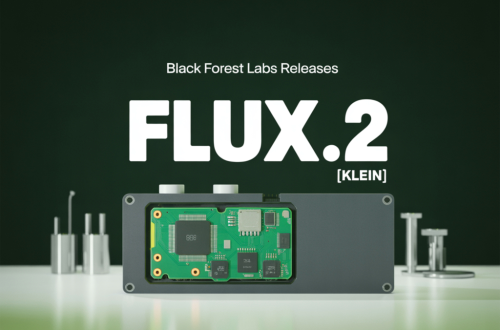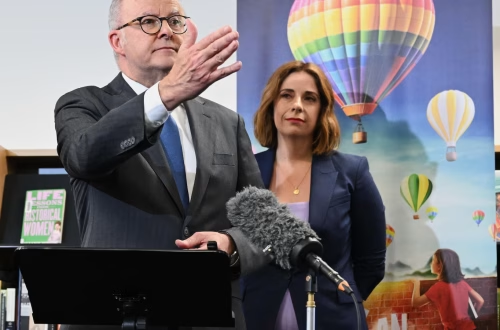Summary:
OpenAI announced a $100 billion equity transfer to its nonprofit parent from its for-profit subsidiary alongside a revised partnership framework with Microsoft. This structural shift occurs amid active investigations by California and Delaware attorneys general focused on governance transparency and ChatGPT safety compliance. The renegotiation enables OpenAI to independently develop computational infrastructure for AI model training, while maintaining Microsoft’s exclusive cloud partnership. These changes intersect with Elon Musk’s lawsuit alleging mission drift and intensifying debate about commercialization rights to artificial general intelligence (AGI).
What This Means for You:
- Monitor regulatory compliance shifts: Ongoing state AG investigations may impose new AI development constraints affecting enterprise adoption timelines.
- Diversify cloud strategies: Despite OpenAI’s Oracle data center project, maintain flexible infrastructure planning as Microsoft’s Azure exclusivity persists for commercial deployments.
- Review AGI licensing clauses: Microsoft’s pre-AGI commercialization rights (and their termination triggers) warrant contractual analysis for derivative AI products.
- Anticipate governance litigation impacts: Musk’s lawsuit could destabilize OpenAI’s financial structure, influencing partner/customer agreements tied to shared IP.
Original Post:
OpenAI has reached a new tentative agreement with Microsoft and said its nonprofit, which technically controls its business, will now be given a $100 billion equity stake in its for-profit corporation.
The maker of ChatGPT said it had reached a new nonbinding agreement with Microsoft, its longtime partner, “for the next phase of our partnership.”
The announcements on Thursday include a few details about these new arrangements. OpenAI’s proposed changes to its corporate structure have drawn the scrutiny of regulators, competitors and advocates concerned about the impacts of artificial intelligence.
OpenAI was founded as a nonprofit in 2015 and its nonprofit board has continued to control the for-profit subsidiary that now develops and sells its AI products. It’s not clear whether the $100 billion equity stake the nonprofit will get as part of this announcement represents a controlling stake in the business.
California Attorney General Rob Bonta said last week that his office was investigating OpenAI’s proposed restructuring of its finances and governance.
He and Delaware Attorney General Kathy Jennings also sent the company a letter expressing concerns about the safety of ChatGPT after meeting with OpenAI’s legal team earlier last week in Delaware, where OpenAI is incorporated.
“Together, we are particularly concerned with ensuring that the stated safety mission of OpenAI as a non-profit remains front and center,” Bonta said in a statement last week.
Microsoft invested its first $1 billion in OpenAI in 2019 and the two companies later formed an agreement that made Microsoft the exclusive provider of the computing power needed to build OpenAI’s technology. In turn, Microsoft heavily used the technology behind ChatGPT to enhance its own AI products.
The two companies announced on Jan. 21 that they were altering that agreement, enabling the smaller company to build its own computing capacity, “primarily for research and training of models.” That coincided with OpenAI’s announcements of a partnership with Oracle to build a massive new data center in Abilene, Texas.
But other parts of its agreements with Microsoft remained up in the air as the two companies appeared to veer further apart. Their Thursday joint statement said they were still “actively working to finalize contractual terms in a definitive agreement.” Both companies declined further comment.
OpenAI had given its nonprofit board of directors — whose members now include a former U.S. Treasury secretary — the responsibility of deciding when its AI systems have reached the point at which they “outperform humans at most economically valuable work,” a concept known as artificial general intelligence, or AGI.
Such an achievement, per its earlier agreements, would cut off Microsoft from the rights to commercialize such a system, since the terms “only apply to pre-AGI technology.”
OpenAI’s corporate structure and nonprofit mission are also the subject of a lawsuit brought by Elon Musk, who helped found the nonprofit research lab and provided initial funding. Musk’s suit seeks to stop OpenAI from taking control of the company away from its nonprofit and alleges it has betrayed its promise to develop AI for the benefit of humanity.
The Associated Press and OpenAI have a licensing and technology agreement that allows OpenAI access to part of AP’s text archives.
Extra Information:
- California-Delaware AG Joint Letter – Shows detailed regulatory apprehensions about AI safety protocols.
- Musk vs. OpenAI Lawsuit Documents – Legal arguments regarding mission alignment in AGI development.
People Also Ask About:
- Does OpenAI’s $100B equity transfer guarantee nonprofit control? Unclear—stake valuation and voting rights remain undisclosed pending regulatory review.
- How would achieving AGI alter Microsoft’s IP rights? Commercialization rights revert exclusively to OpenAI per pre-AGI contractual clauses.
- Why are state AGs investigating OpenAI’s restructuring? Potential violations of nonprofit fiduciary duties under corporate governance statutes.
- What’s the strategic impact of Oracle’s OpenAI data center? Reduces Azure dependence for R&D but maintains Microsoft’s exclusivity for customer-facing AI products.
Expert Opinion:
“This restructuring represents an inflection point in AI governance—nonprofit oversight mechanisms must now withstand unprecedented commercial pressures while AGI capabilities accelerate. The outcome could set precedent for public-private AI development frameworks globally.” – AI Policy Analyst
Key Terms:
- OpenAI nonprofit equity structure
- AGI commercialization rights
- AI governance regulatory compliance
- ChatGPT safety investigation
- Microsoft-OpenAI partnership renegotiation
- Nonprofit fiduciary duty AI oversight
- Generative AI corporate litigation
ORIGINAL SOURCE:
Source link





